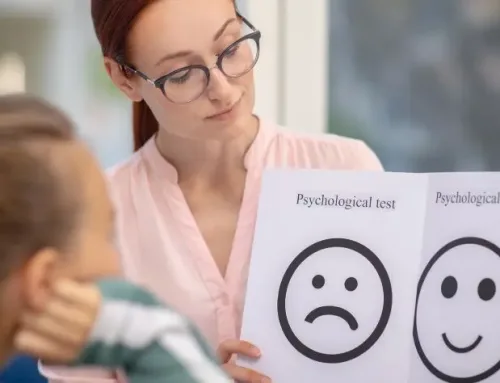How to Become a Psychodynamic Therapist: Training and Specialization

Wondering how to become a psychodynamic therapist? For those drawn to the deeper layers of human behavior, this approach offers a path to help clients explore unconscious patterns, emotional conflicts, and relational dynamics that shape their lives. It’s a rich, introspective modality rooted in theory and clinical presence—designed for those who want to go beyond surface-level symptoms.
Becoming a psychodynamic therapist requires specialized training, supervised clinical experience, and a commitment to reflective practice. Whether you’re just starting your mental health career or building on existing credentials, understanding the steps involved will help you plan your next move with clarity. If you’re looking for a method that values depth, nuance, and human complexity, this could be the right direction.
How to Become a Psychodynamic Therapist: Training and Specialization
What Is a Psychodynamic Therapist?
A psychodynamic therapist helps clients understand how unconscious thoughts, past experiences, and early relationships shape current patterns in emotions, behavior, and relationships. This therapeutic approach is rooted in psychoanalytic theory and continues to evolve with modern clinical practice. It’s a deeply reflective method that emphasizes long-term growth, emotional insight, and the healing power of the therapeutic relationship.
At its core, psychodynamic therapy is aimed at insight. Therapists listen closely, not just to what is being said, but to what is being felt, meaning the underlying experience and process. They pay attention to the therapeutic relationship itself, including moments of tension, connection or disconnection, as a mirror for how the client experiences the world. Over time, this helps clients build awareness, recognize and modify old patterns, and create space for lasting change.
A psychodynamic therapist works with:
- Clients seeking to understand recurring emotional struggles
- Unconscious patterns that influence current relationships
- The impact of early experiences on present-day functioning
- The therapeutic relationship itself as a vehicle for healing
Many who are drawn to this work feel a strong pull toward emotional depth, complexity, and the long arc of healing. If you have ever found yourself wondering why people do what they do—or wanting to help others explore their own emotional stories—this approach may feel like home. And with the right training, it can become your professional path.
Educational Pathway to Psychodynamic Therapy Practice
Becoming a psychodynamic therapist requires focused education, clinical experience, and a real commitment to personal and professional growth. This pathway is ideal for those who want to work with depth, patience, and presence. Whether you are just starting to explore graduate programs or considering a PsyD to expand your scope, each stage of the journey is designed to build your capacity for this nuanced and relational work.
Master’s Degree Foundation (2 Years)
The first step for most aspiring psychodynamic therapists is earning a master’s degree in a mental health field such as psychology, counseling, or social work. This is where you begin to build your clinical identity and gain hands-on experience working with clients. Many programs include basic training in psychodynamic theory, along with practical tools for assessment, intervention, and case formulation.
During your master’s training, you will focus on:
- Building clinical skills through supervised practicum
- Learning core psychological theories, including psychodynamic principles
- Beginning to conceptualize cases through developmental and relational lenses
- Preparing for doctoral-level education if you choose to advance
These two years lay the groundwork for deeper specialization and advanced clinical work. If you already hold a master’s degree in a related field, you’ve completed one of the most important steps toward becoming a psychodynamic therapist and are well-positioned to continue your professional development at the doctoral level.
SCUHS Doctor of Psychology (PsyD) – Premier Psychodynamic Training
At Southern California University of Health Sciences (SCUHS), we offer a Doctor of Psychology (PsyD) in Psychodynamic Psychology program that emphasizes psychodynamic training within a community-based, multicultural framework. The program is accelerated to 3.3 years, allowing you to move through advanced training efficiently while gaining real-world experience. Dr. Jens Schmidt leads our psychodynamic focus, blending contemporary psychodynamic theory and approaches with neuroscience and trauma-informed care.
Our approach supports the development of strong, reflective clinicians with the tools to practice in diverse and often underserved communities. You will gain:
- A deep and practical understanding of psychodynamic theory and casework
- Clinical training under faculty with psychodynamic expertise
- Supervision that supports both technical skill and professional identity
- Experience in community settings that reflect real life complexity
It’s a training environment built for thoughtful, committed future therapists.
Curious about how psychodynamic training fits your career goals? Join a virtual info session or reach out to admissions@scuhs.edu—we are happy to talk it through.
Specialized Psychodynamic Training and Certification
Beyond your formal degree, many psychodynamic therapists pursue ongoing education through postdoctoral institutes and specialized programs. These may include advanced seminars, psychoanalytic institutes, or training in long-term, insight-oriented therapy models. In many cases, personal analysis and regular supervision are encouraged or required, helping therapists stay grounded and self-aware in the work.
These opportunities can include:
- Certification programs in psychodynamic or psychoanalytic therapy
- Ongoing clinical supervision with senior psychodynamic practitioners
- Peer consultation groups and continuing education workshops
- Professional memberships in psychodynamic organizations
Becoming a psychodynamic therapist is a lifelong learning process, built on both academic knowledge and the personal depth you bring into the room.
Dr. Jens Schmidt’s Psychodynamic Approach at SCUHS
Dr. Jens Schmidt brings a unique, deeply grounded approach to psychodynamic therapy that reflects both clinical depth and cultural awareness. His leadership shapes how we train future psychologists at SCUHS, focusing on insight, relationship, and a strong sense of real-world relevance. If you are drawn to the kind of therapy that honors emotional complexity, long-term growth, and systemic understanding, Dr. Schmidt’s clinical philosophy is one that invites you in and challenges you to grow.
Innovative Integration of Classical and Modern Approaches
Dr. Schmidt’s work draws from the classical foundations of psychoanalysis—while incorporating contemporary, evidence-based psychodynamic models that support diverse client needs. His approach is dynamic, integrative, and built to serve modern therapists working across a range of clinical and community settings.
Students trained under his guidance benefit from:
- A psychodynamic core rooted in depth psychology
- Integration of neuroscientific skills for emotional regulation and real-world application
- Trauma-informed techniques grounded in relational frameworks
- A strong emphasis on cultural competency and clinical responsiveness
This blend gives students the flexibility to meet clients where they are, while staying true to the reflective depth of psychodynamic work.
SCUHS Psychodynamic Curriculum Excellence
Our curriculum provides thorough education in psychodynamic theory, with special attention to how these concepts translate into everyday clinical practice. Students explore object relations, ego psychology, and self psychology, and learn to apply these frameworks in diverse treatment settings.
The SCUHS PsyD emphasizes:
- In-depth training in classical and contemporary psychodynamic models
- Case formulation through a psychodynamic lens
- Continuous clinical supervision and mentorship with psychodynamic faculty
- Opportunities to practice and refine techniques in real-world settings
You will leave the program prepared to deliver psychodynamic therapy with skill, clarity, and compassion.
Community-Driven Psychodynamic Practice
At SCUHS, we believe depth-oriented therapy must reflect the lived realities of the communities we serve. Our contemporary psychodynamic framework is grounded in cultural humility, justice, and equity—essential values in serving BIPOC and underserved populations through meaningful, reflective clinical work.
Through this lens, our students learn to apply psychodynamic principles across diverse cultural identities. They explore how to integrate social justice into treatment planning, adapt depth-oriented therapy for community settings, and recognize the role of cultural narratives in the therapeutic process.
This training develops clinicians who are both relationally attuned and socially conscious, equipped to bring insight and equity together in their work, with a deep sense of integrity and purpose.
Core Competencies for Psychodynamic Therapists
Becoming a skilled psychodynamic therapist takes more than learning theory, it takes time, practice, and clinical mentorship. This approach is rooted in understanding the complexity of human experience and the subtle ways emotions, relationships, and unconscious patterns shape behavior. At SCUHS, we train clinicians to engage with that complexity while remaining attuned, ethical, and culturally responsive in their work.
Theoretical Foundation and Clinical Skills
Psychodynamic therapy calls for a grounded understanding of both classical and contemporary theory. It also demands sharp clinical instincts and the ability to work relationally across time. As you build competency in this field, you will deepen your awareness of the internal world—both yours and your clients’.
SCUHS Training in Psychodynamic Competencies
At SCUHS, we support your development through immersive training experiences. Our program offers live supervision, process-oriented group learning, and one-on-one mentorship in psychodynamic case formulation. You will learn how to think clinically, write analytically, and engage reflectively—with close faculty guidance throughout.
Training includes:
- Mentorship in psychodynamic case conceptualization
- Integration of classical psychodynamic frameworks into everyday therapy
- Culturally attuned application of psychodynamic insights
This environment is designed to help you grow into a confident, well-rounded clinician who works with both depth and clarity.
Advanced Psychodynamic Techniques
As your skills deepen, so does your capacity to navigate the more complex elements of psychodynamic work. SCUHS prepares you for long-term therapeutic relationships, in-depth psychological assessment, and nuanced use of techniques across client presentations and settings.
Advanced training includes:
- Working with unconscious material and client resistance
- Maintaining therapeutic relationships over extended periods
- Using psychodynamic assessment for diagnostic clarity
- Blending psychodynamic work with complementary modalities like neuroscientific findings and trauma-focused care
Through practice, supervision, and reflection, you will develop a clinical skill set that is both theoretical sound and deeply human.
SCUHS Advantages for Psychodynamic Therapy Training
If you are drawn to the depth, insight, and clinical challenge of psychodynamic therapy, SCUHS offers a training environment that brings those elements to life, while preparing you for licensure and long-term success. Our curriculum is deeply rooted in psychodynamic theory but also highly responsive to the world we live in today. You will gain the mentorship, structure, and clinical exposure needed to grow into a confident, culturally attuned psychodynamic therapist.
Dr. Schmidt’s Clinical Expertise and Mentorship
Our program is led by Dr. Jens Schmidt, whose approach blends psychodynamic depth with contemporary relevance. His work centers on integrating neuroscience and trauma-informed perspectives within a psychodynamic framework, while also emphasizing multicultural and community-based applications. You will train under his guidance through coursework and clinical consultation.
Highlights of Dr. Schmidt’s mentorship include:
- Extensive real-world experience in psychodynamic practice
- Applied psychodynamic training across diverse populations
- Personal mentorship and supervision grounded in cultural humility
- Ongoing support in developing your clinical voice and conceptual skills
Accelerated Timeline with Comprehensive Training
Time matters when planning your career path. SCUHS offers an accelerated 3.3-year PsyD program designed to give you intensive psychodynamic training within a faster, focused format. This timeline helps you transition more efficiently into advanced practice without sacrificing depth or rigor.
You’ll gain:
- A streamlined path to clinical expertise in psychodynamic therapy
- A focused clinical curriculum that builds directly on your strengths
- Full licensure preparation in less time than traditional programs
- Earlier entry into independent practice and career advancement
Hybrid Format for Psychodynamic Learning
Our hybrid format is designed to support deep learning and practical application while accommodating the demands of real life. Supervision, process groups, and case consultation are integrated into the curriculum, ensuring close mentorship throughout your development. The flexible structure allows you to continue professional work while advancing your clinical expertise in psychodynamic therapy.
Want to practice therapy at the deepest level? Our PsyD can get you there. Start your application or email admissions@scuhs.edu to learn more.
Psychodynamic Therapy Specializations and Applications
Psychodynamic therapy is a versatile and deeply nuanced approach that extends far beyond traditional one-on-one sessions. With the right training, you can apply psychodynamic principles in a range of therapeutic settings and with diverse populations, each requiring a thoughtful, insight-driven approach rooted in relationship, meaning, and emotional depth.
Individual Psychodynamic Therapy
Individual therapy remains a cornerstone of psychodynamic practice. This long-term, insight-oriented work focuses on uncovering unconscious patterns, exploring early attachment experiences, and addressing personality organization. Clinicians develop strong therapeutic alliances to support lasting transformation through relational depth and attunement.
Practitioners are trained to:
- Work with trauma and character structure
- Engage in nuanced interpretation and emotional processing
- Support clients through crisis from a psychodynamic lens
Group and Family Psychodynamic Approaches
Group and family work offer rich opportunities to apply psychodynamic understanding to interpersonal dynamics. Whether facilitating group therapy, working with couples, or integrating psychodynamic concepts into family systems, therapists bring attention to transference, projection, and emotional themes within relational contexts.
These approaches are especially effective in community settings and emphasize relational healing through group insight, emotional mirroring, and shared meaning.
Specialized Populations and Settings
Psychodynamic therapy adapts well across cultures, developmental stages, and treatment contexts. At SCUHS, we emphasize training that equips students to work with BIPOC communities, children and adolescents, and individuals in medical or substance use recovery settings. Therapists develop the skills to apply depth-oriented care in ways that are culturally attuned, developmentally appropriate, and contextually grounded.
Career Opportunities for Psychodynamic Therapists
Private Practice Psychodynamic Therapy
Psychodynamic therapists often thrive in private practice settings, where long-term therapeutic relationships allow for deep, transformative work. Many clinicians build sustainable caseloads through word-of-mouth, reputation, and specialized offerings like personality-focused treatment, trauma-informed care, and psychoanalytic psychotherapy.
With full licensure, practitioners enjoy complete autonomy, setting their own schedules, fees, and treatment modalities. For those seeking both professional freedom and clinical depth, private practice offers a powerful balance.
Healthcare and Institutional Settings
Psychodynamic therapy also holds strong value in collaborative care environments. Clinicians with this training contribute insight and emotional understanding in high-stakes settings, offering consultation and support across disciplines.
Opportunities include:
- Providing psychodynamic consultation in hospital and medical centers
- Developing community mental health programs with a depth-oriented lens
- Serving in leadership roles to train and supervise other clinicians
- Teaching in academic institutions or conducting research in psychodynamic theory
Teaching and Training Opportunities
For many psychodynamic therapists, teaching is a natural extension of clinical work. The capacity to help others develop therapeutic insight is deeply rewarding. Licensed professionals often become supervisors, faculty members, or facilitators of continuing education workshops. Some contribute to the field through publishing, curriculum design, or clinical writing, all of which help keep the tradition evolving while mentoring the next generation of depth-oriented therapists.
Personal Development and Self-Reflection
Becoming a psychodynamic therapist involves more than learning theories and techniques—it’s also about developing a deeper understanding of yourself. In this field, personal insight is considered an essential part of professional competence. At SCUHS, we emphasize growth from the inside out, supporting you in building the self-awareness, emotional clarity, and reflective capacity that are vital for working at depth with others.
Personal Therapy and Analysis
Engaging in your own therapy is a foundational part of psychodynamic training. It helps you understand unconscious processes, recognize emotional patterns, and manage countertransference in clinical work. This experience models the therapeutic process you’ll later guide others through. It also strengthens your ability to build trust, sit with emotional complexity, and stay present in the long arc of psychodynamic treatment.
SCUHS Support for Personal Development
At SCUHS, personal and professional development are central to the PsyD experience. We see your background, values, and lived experience as essential strengths that enrich your work and perspective. Guided by Dr. Jens Schmidt and our faculty, you’ll engage in mentorship, peer collaboration, and reflective learning that support growth in both your professional identity and your sense of purpose as a psychologist.
Our program includes:
- Dedicated space for personal reflection within coursework
- Mentorship on integrating life experience into clinical identity
- Community support for processing challenges and insights
- Encouragement of self-awareness as a lifelong professional asset
Ongoing Professional Growth
Personal development doesn’t stop at graduation. Psychodynamic therapists continue growing through ongoing supervision, professional consultation, and advanced training. Many remain actively engaged in clinical writing, peer discussion groups, or research. As the field evolves, so does your role within it—giving you the opportunity to deepen your expertise, expand your impact, and stay connected to the emotional richness of the work.
Timeline to Psychodynamic Therapy Expertise
Becoming a skilled psychodynamic therapist is a journey built on both academic training and deep clinical experience. The path varies depending on the route you take, but with a clear plan and the right support, you can move toward independent psychodynamic practice with confidence. At SCUHS, we’ve designed a streamlined, immersive pathway that respects your time while delivering a rich and rigorous education.
SCUHS Accelerated Pathway
If you’re starting with a master’s degree in psychology, counseling, or social work, SCUHS offers an accelerated path to psychodynamic expertise. Our 3.3-year PsyD program includes robust psychodynamic training integrated throughout the curriculum, allowing you to specialize as you work toward licensure. Internship and postdoctoral supervision continue this focus, guiding you toward confident, independent practice.
Traditional Training Timeline
More traditional paths to psychodynamic therapy typically involve a PhD, which adds time for research and academic work, followed by separate psychoanalytic training. This route may take 11 years or more from start to finish. While rich in theory, these programs often delay clinical immersion and specialization.
Continuing Specialization Development
Even after licensure, many psychodynamic therapists continue building their expertise through advanced training. Specialized institutes, continuing education workshops, and case consultation groups allow you to refine your skills, explore new areas of interest, and stay current with emerging developments in the field. Lifelong learning is part of what makes psychodynamic therapy so dynamic and rewarding.
Ready to Begin Your Psychodynamic Therapy Training with SCUHS?
If you’re called to become a psychodynamic therapist—someone who understands the deeper layers of human experience and builds long-term, transformative relationships with clients—our PsyD program offers the foundation you need. With Dr. Jens Schmidt leading our psychodynamic training, you’ll gain deep clinical insight, community-based experience, and mentorship rooted in cultural humility and whole-person care.
If you’re ready to take the next step, schedule a virtual consultation with Dr. Schmid to learn more about our curriculum, application process, and training pathway. You can also review our financial aid and scholarship opportunities to support your journey.
Have any more questions? Email us anytime at admissions@scuhs.edu—we’re here to help.
Frequently Asked Questions
What kind of degree do I need to become a psychodynamic therapist?
You’ll typically need a master’s or doctoral degree in psychology, counseling, or social work. To practice independently with a psychodynamic focus, a Doctor of Psychology (PsyD) provides the most comprehensive clinical and theoretical training.
What careers can I pursue with psychodynamic specialization?
You can work in private practice, hospitals, community mental health, training and supervision, or academic settings. A psychodynamic background enhances your ability to work with complex emotional and relational issues.
Can I specialize in psychodynamic therapy through SCUHS?
Yes, our PsyD program offers integrated psychodynamic training throughout the curriculum, led by Dr. Jens Schmidt. You’ll gain deep theoretical grounding and hands-on clinical experience with a focus on insight-driven, culturally responsive care.
Can I apply if I have a background in social work or counseling?
Absolutely. Many of our students come from MSW or counseling programs. We welcome diverse clinical backgrounds and offer a supportive pathway into advanced psychodynamic practice.
What will I learn in a psychodynamic therapy program?
You’ll study unconscious processes, defense mechanisms, transference, early attachment, personality structure, and therapeutic technique. You’ll also develop clinical skills in assessment, formulation, and long-term therapy work.
How long does it take to become a psychodynamic therapist?
The full journey can take 6–8 years, depending on your current education level. At SCUH
Related Posts




